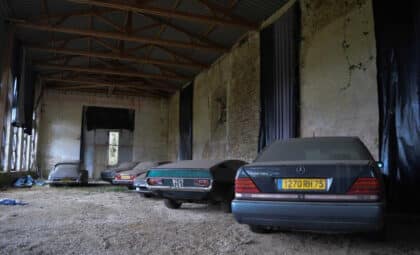
Since their invention a century ago, automobiles have become an integral part of our lives, not just in transportation and culture, but even in language. Their presence has not only led to the formation of a dictionary’s-worth of original vocabulary, but also has infected unrelated expressions we use on a daily basis.
Let’s examine how some of these automotive-related idioms and terms came to be, and what they’re used for now.
How to Know You’re Getting the Best: Tips for getting the most out of your vehicle test drive
“Grease monkey”: While this term is now used to refer to a mechanic working in a garage, it may have originally referred to children who worked in British factories who’d climb onto factory engines to grease the axles.
“Stop on a dime”: Used to refer to vehicles that have good brakes and the ability to come to a rapid stop from fast speeds. The exact origin is unknown, but it may have to do with the tiny size of the coin; similarly, some Brits use the phrase “stop on a sixpence.”
“Backseat driver”: As early as the first automobiles at the onset of the 20th century, we’ve had people giving unwanted driving advice. Originally, though, the phrase probably wasn’t meant negatively and instead referred to some vehicles which had both front- and rear-positioned steering wheels.
“Kick the tires”: According to the Chicago Tribune, there are many possible origins to this phrase, most notably the use of a tire billy club in early automotive days to hit and check the inflation of a vehicle’s tires. The phrase refers to a quick, un-thorough way to inspect something.
“Get the show on the road”: Meaning an effort to get a plan underway, this idiom has ties to the early 20th century travelling circus.
“Face like the backend of a bus”: A British phrase that has been around for half-a-century and doesn’t have a determined origin. It means that someone looks very ugly, particularly in the face.
“A lemon”: We now call junk cars “lemons,” and the term was used previously for a defective product obtained in a hustle (causing the pucker-face reaction). Thanks to a VW advertising campaign in the 1960s, the term is associated most with automobiles.
“Pedal to the metal”: Synonymous with “flooring it,” this phrase originated in the 1970s and directly refers to a vehicle’s gas pedal being pushed so far, it touches the floor. We now use the phrase in reference to activities we do with rapid speed.
“One track mind”: While this phrase actually originated in the 1920s referring to trains rather than automobiles, it’s still inspired by transportation. The phrase refers to someone who obsessively thinks about only one single thing, like a train that’s on a track that doesn’t diverge elsewhere.
“Shifting gears”: In spite of the drastic decline in manual transmissions, this phrase will endure as an allusion to when a topic of discussion is abruptly changed. Unfortunately, it’s not an accurate correlation, since shifting gears alters a vehicle’s speed, not its direction.
The Future of Transportation: Why buying a hybrid car is a wise decision
Aaron is unashamed to be a native Clevelander and the proud driver of a Hyundai Veloster Turbo (which recently replaced his 1995 Saturn SC-2). He gleefully utilizes his background in theater, literature, and communication to dramatically recite his own articles to nearby youth. Mr. Widmar happily resides in Dayton, Ohio with his magnificent wife, Vicki, but is often on the road with her exploring new destinations. Aaron has high aspirations for his writing career but often gets distracted pondering the profound nature of the human condition and forgets what he was writing… See more articles by Aaron.








